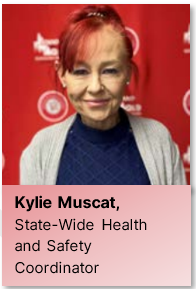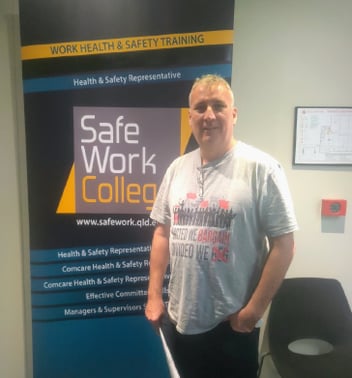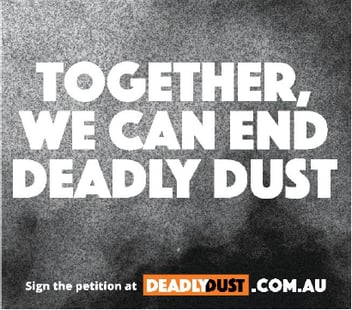HSR News July 2023 | Protect yourself from retribution when speaking up
Protecting yourself from retribution when speaking up
 From time to time, HSRs may share stories in this newsletter, or on social media, including on the QLD HSR Discussion Group Facebook Page for the purpose of obtaining support and advice. But it is important that you do so in a manner that protects you from the risk of retribution from your employer. While you are always encouraged to speak up, protecting your employment is paramount.
From time to time, HSRs may share stories in this newsletter, or on social media, including on the QLD HSR Discussion Group Facebook Page for the purpose of obtaining support and advice. But it is important that you do so in a manner that protects you from the risk of retribution from your employer. While you are always encouraged to speak up, protecting your employment is paramount.
Often, the stories that are shared by HSRs include the details of unresolved safety issues, as well as views on how an employer should better manage a risk, consult with workers, or support HSRs. But employers don’t like to look bad and when they are publicly called out for things they should be doing better, they often allege that their reputation has been damaged.
They then look for someone to blame.
Many workers, HSRs or otherwise, have been caught up in this, and have had to face conduct investigations or disciplinary action processes (or worse) because of the things they have said on public record, in media (like this newsletter) – or on social media (whether on a public or private page or group).
My Story
 I spent nearly 10 years working in a high-risk industry (which I left about 10 years ago) and for a long time health and safety in my workplace was something that just existed but no one really gave any thought or importance to. It was something that management looked after. We had no idea about Health and Safety Representatives, or the power they have within a workplace to influence positive change and improve health and safety.
I spent nearly 10 years working in a high-risk industry (which I left about 10 years ago) and for a long time health and safety in my workplace was something that just existed but no one really gave any thought or importance to. It was something that management looked after. We had no idea about Health and Safety Representatives, or the power they have within a workplace to influence positive change and improve health and safety.
Of course, if there was a major incident we would come together to debrief and work together to solve the issue, but in my experience, profit appeared to outweigh anything else – including the cost of keeping me and my colleagues safe. Had I known what I know now, the circumstances would be very different, but my colleagues and I believed there was little we could do to change the situation.
Out of frustration, I spoke out in the media (newspaper and radio) about serious safety issues that were occurring in my workplace with the hope that by doing so something would finally be done to address them. At the time, I was aware that my employer (the PCBU) had a policy around speaking to the media, but I believed I had spoken out in a manner that did not breach the policy. I did not think that speaking out would jeopardise my employment.
I was of the belief that under the law at the time I was speaking as a representative of my fellow workers (I was a union delegate) and not as an employee of the company I worked for, and so I thought there was no need to remain anonymous or that there would be any problem with identifying my employer and workplace.
I got it wrong.
In the end, my employer didn’t see it that way and I had to respond to allegations about breaching the policy. It became debatable whether I had done anything wrong, but it got very complex. It was a very grey area, so I ended up resigning from my position.
Given the nature in which we normally engage with it, comments made on social media can present a significant risk. Unfortunately, everything we post on social media can be accessed by, or shared with, just about anyone, including people we do not intend to share our post with (like an employer). Case law around this matter has demonstrated that posting in a private group or chat does not necessarily provide any greater protection.
While this is a very complex matter, some simple ways you can protect yourself are by:
- Thinking clearly about everything you are going to say and how it may be perceived by others.
- Carefully considering if you can achieve the same purpose by sharing a
de-identified version of the same story (i.e., not mentioning your name or the names of others). - Carefully considering if sharing other people’s content presents any risks, as doing so can place you in the same position as though you had said it yourself.
- Ensuring you do not identify yourself as an employee of your company (including on social media platforms) unless it is necessary (i.e., not mentioning your employer’s name or the name of your workplace).
- Carefully considering any Code of Conduct, policy or procedure that may apply to your employment.
- Seeking expert advice (e.g., from a union representative) before you make a comment if you have any concerns.
What am I saying? You have the right to speak up, and you have the right to tell your story, but it is best to do it in a way that does not place your employment at risk.
Below is an example of how a HSR can tell their story safely:
Hi
I am a proud HSR who completed their training about a month or so ago. I work in the education industry that at times has challenges both physically and mentally. Recently I have tried to raise some WHS concerns at my workplace as some of my coworkers have been involved in incidents that have caused them physical and psychological injuries.
The PCBU does not seem to be receptive to our issues (even though there have been actual incidents) and has indicated that it is not within my role as an HSR.
I believe there continues to be a physical and psychological risk to my work group and that we need a review of the current control measures to look at implementing more appropriate ones. I am struggling to get the PCBU to agree.
I am asking if any of you have been through something similar. If so, what advice would you have to assist me in my role as an HSR for my work group to have these concerns addressed?
For more information, please contact HSR Support Service at hsrsupport@qcu.asn.au
If you do have a concern and believe you require industrial advice, please contact QCU Industrial Officer Nate Tosh at natet@qcu.asn.au




